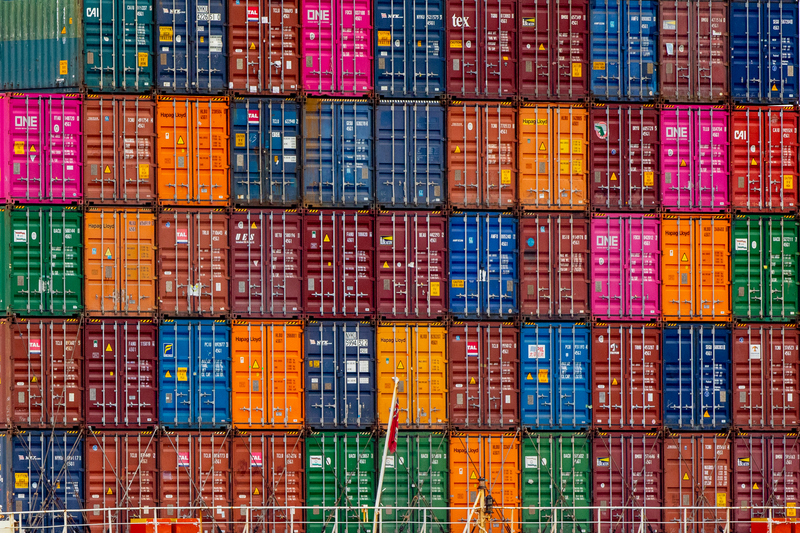US authorities have issued a renewed plea for continued vigilance by US financial institutions over potential attempts by Russia to evade US export controls.
The US Treasury Department’s Financial Crimes Enforcement Network (FinCEN) and the US Department of Commerce’s Bureau of Industry and Security (BIS) issued a supplemental joint alert showcasing the effort designed to constrain, if not prevent, Russia from accessing technology and goods to supply and replenish its military and defense industrial base.
The alert supplements the first FinCEN-BIS June 2022 joint alert by adding some new export control restrictions, introducing nine new high-priority Harmonized System (HS) codes to inform US financial institutions’ customer due diligence, and identifying additional red flags to assist in identifying suspicious transactions relating to possible export control evasion.
New restrictions
To supplement the 2022 one, this May alert features BIS imposing additional export control restrictions, particularly by targeting third countries, such as Iran and China, both of which have served as supply conduits to the Russian war machine. The new alert also adds hundreds of low-level items to the list of export controls, plus targets specific items going to Iran, including semiconductors, that are components for Iranian Unmanned Aerial Vehicles used by Russia in Ukraine.
The new alert also identifies nine HS codes covering critical US components that Russia relies on for its weapons systems.
HS Codes are used globally to classify goods for export and are used by customs authorities when assessing duties and gathering statistics. The HS is administrated by the World Customs Organization and updated every five years.
This latest alert adds to the commodities of concern first highlighted in the 2022 Alert, identifying nine HS codes covering critical US components that Russia relies on for its weapons systems, making a license required for any items associated with these HS codes destined to Russia, Belarus, the Crimea region of Ukraine, or Iran, including certain foreign-produced items.
The US Treasury and BIS say that Russia is specifically using evasive methods to acquire these items.
Risk-based approach
The joint alert instructs financial institutions with customers in maritime or export/import industries to continue relying on the financial institutions’ internal risk assessments and using risk-mitigation measures consistent with their Bank Secrecy Act obligations.
This approach also encompasses financial services firms (particularly banks, credit card operators, and foreign exchange dealers) using the due diligence policies and procedures required by regulation and law, such as FinCEN’s customer due diligence and beneficial ownership requirements.
Financial institutions are also strongly encouraged to conduct such due diligence when encountering one of the HS codes and identify possible third-party intermediaries and attempts at evasion of US export controls, and the new alert lists several fact patterns FinCEN/BIS have noticed in higher-risk countries that have raised diversion concerns.
The transshipment points through which restricted or controlled exports have been known to pass before reaching destinations in Russia or Belarus are considered higher risk geographic points, and they are (but are not limited to): Armenia, Brazil, China, Georgia, India, Israel, Kazakhstan, Kyrgyzstan, Mexico, Nicaragua, Serbia, Singapore, South Africa, Taiwan, Tajikistan, Turkey, United Arab Emirates, and Uzbekistan.
Due diligence
FinCEN and BIS ask that financial institutions conduct due diligence when opening accounts for new customers engaged in trade, and especially doing so for those listed countries. Such enhanced due diligence measures include:
- evaluating the customer’s date of incorporation (eg, incorporation after February 24, 2022);
- evaluating the end user and end use of the item (eg, whether the customer’s line of
business is consistent with the ordered items), and; - evaluating whether the customer’s physical location and public-facing website raise any
red flags (eg, business address is a residence, no website is available).
Red flags
FinCEN and BIS further provide an additional select list of potential red flag indicators of export control evasion, including flags derived from recent BSA reporting, that may be relevant to financial institutions and other covered institutions or persons, and the agencies advise institutions to read them in conjunction with those set out in the 2022 Alert.
The nine new transactional and behavioral red flags include such things as transactions involving a customer lacking or refusing to provide details to banks, shippers, or third parties, including about end users, intended end-use, or company ownership; and a customer significantly overpaying for a commodity based on known market prices.
















